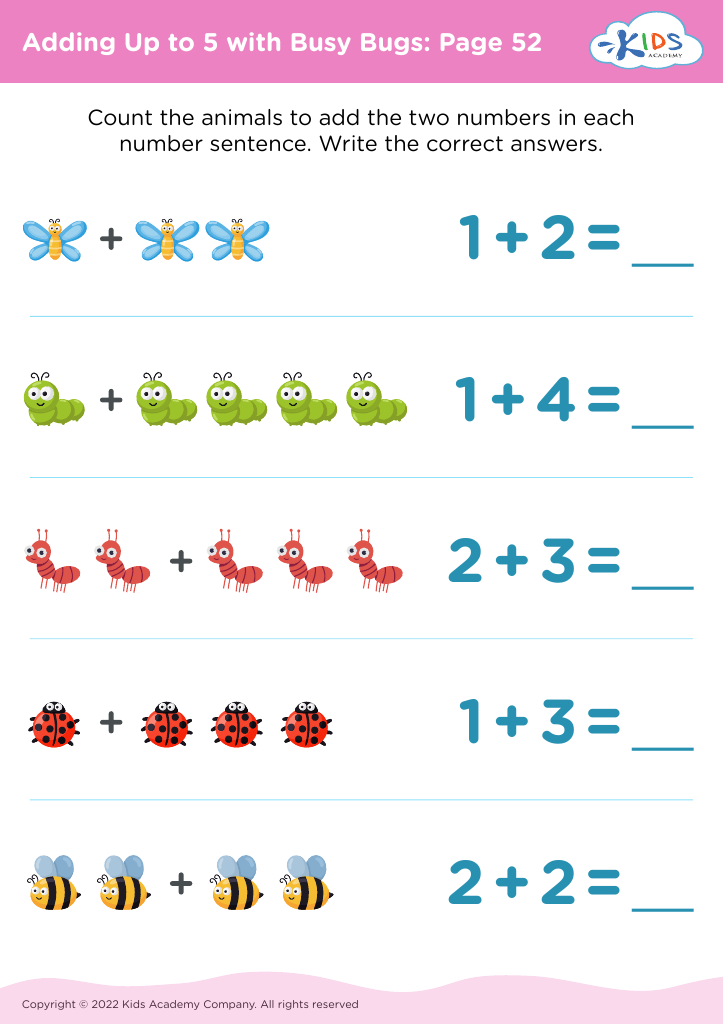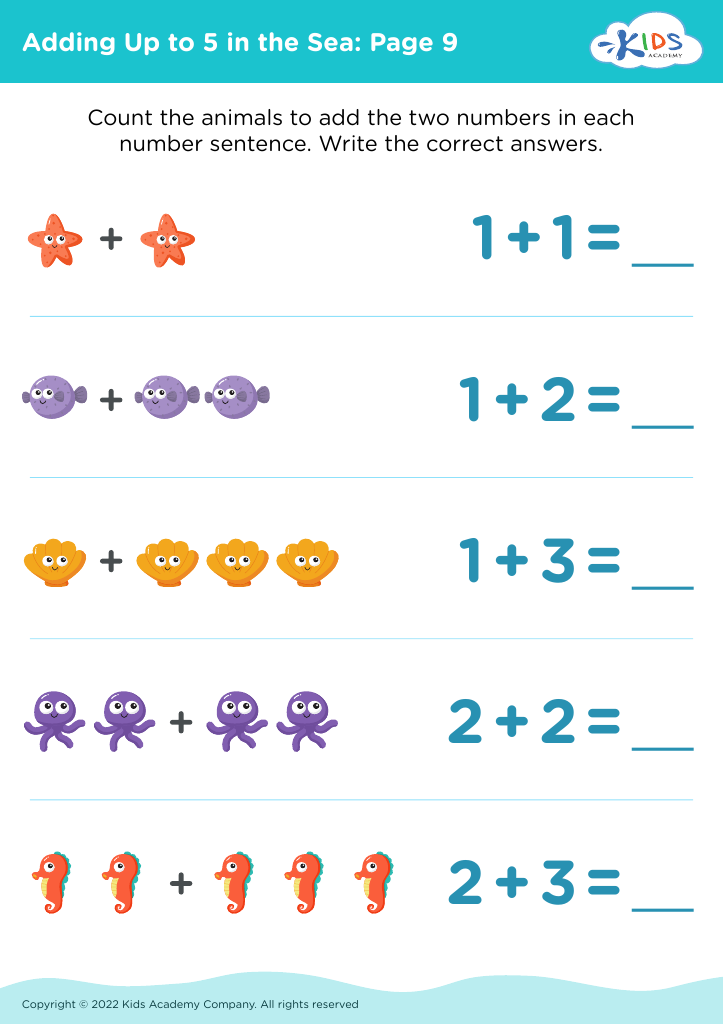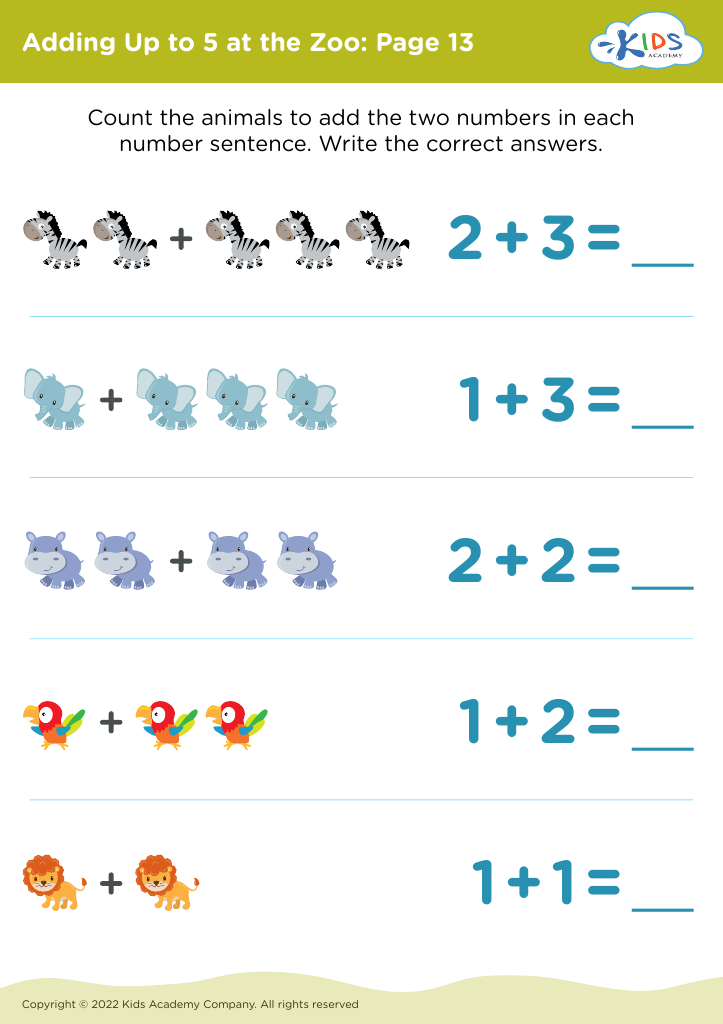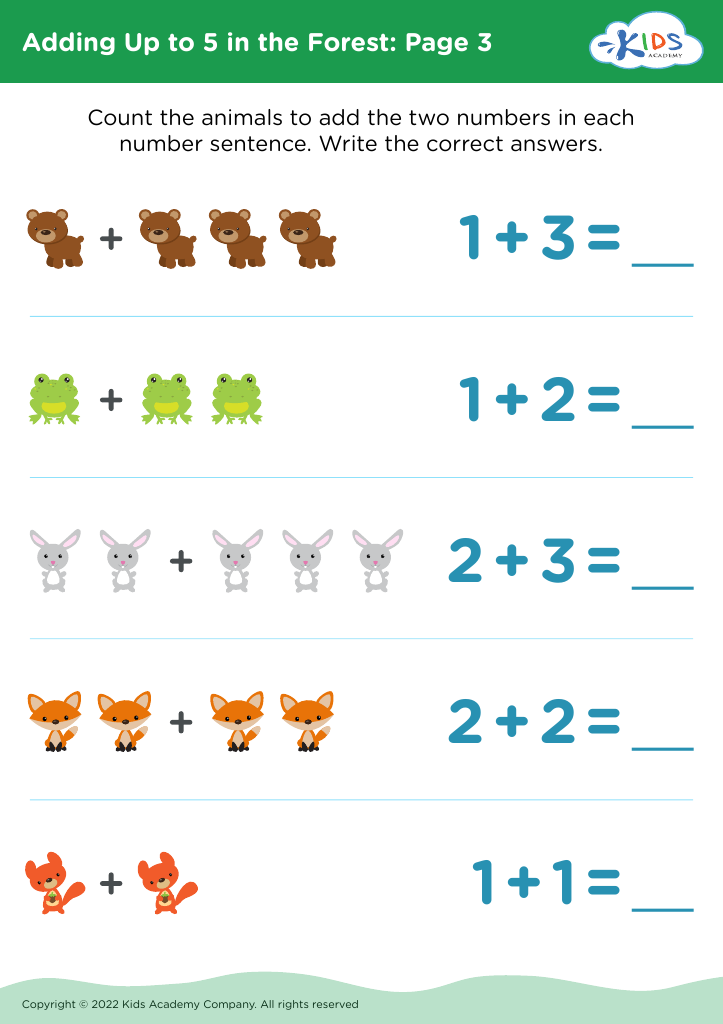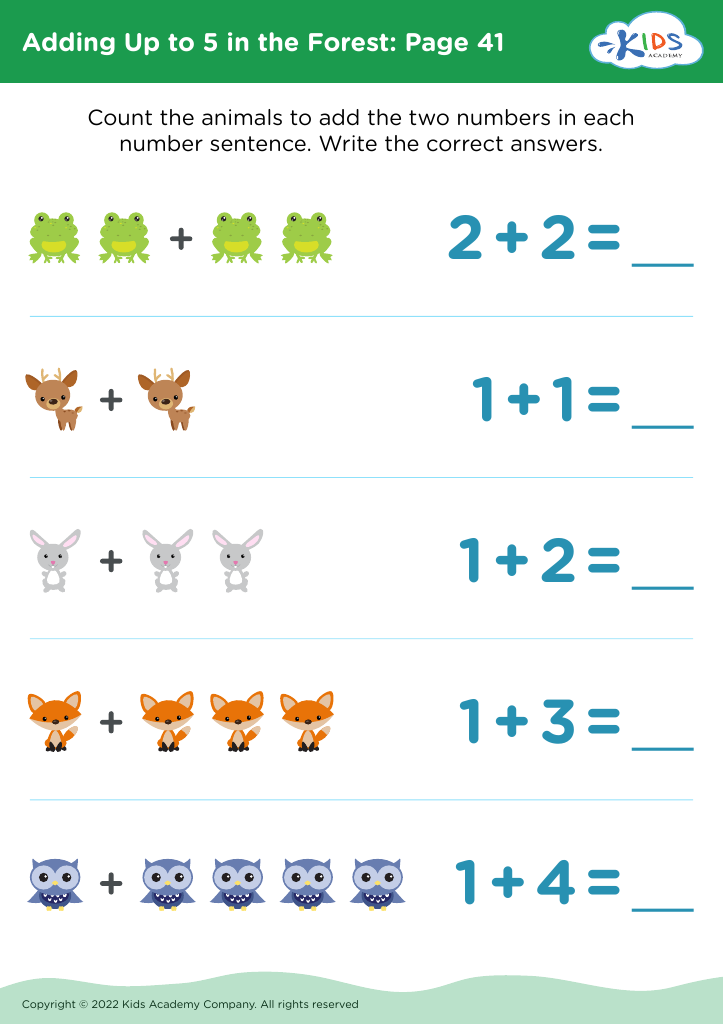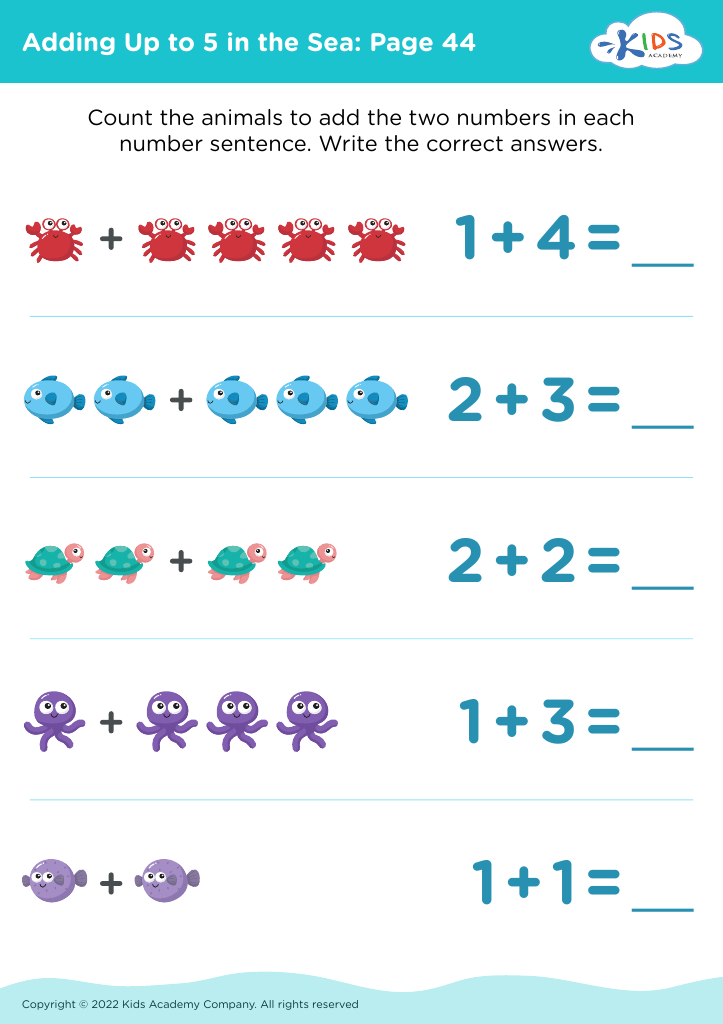Counting practice Addition & Subtraction Worksheets for Ages 5-9 - Page 13
305 filtered results
-
From - To
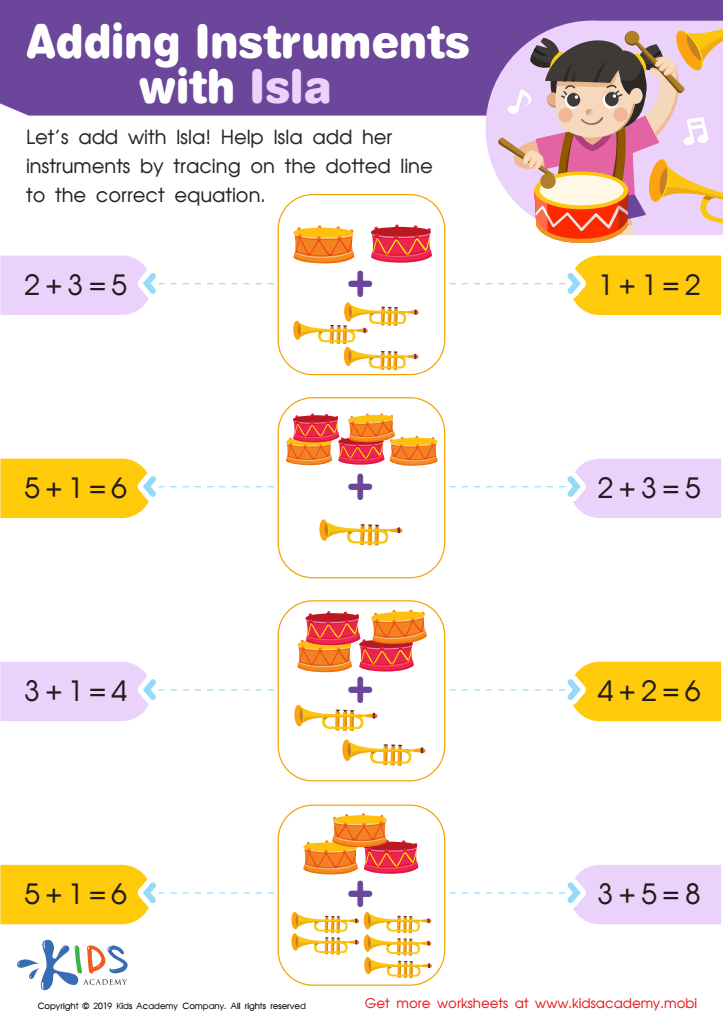

Adding Instruments with Isla Worksheet
Counting practice, addition, and subtraction are foundational skills that form the building blocks of more advanced mathematical concepts. For children ages 5-9, developing strong numerical and arithmetic skills early on is crucial for several reasons.
First, mastering basic math promotes cognitive development. Engaging young minds in counting and simple calculations enhances problem-solving abilities, logical thinking, and reasoning skills. Children learn to recognize patterns, understand sequences, and develop a sense of order—all critical aspects of their overall intellectual growth.
Second, early math proficiency directly impacts academic achievement. Numerous studies have demonstrated that a solid understanding of basic math in early childhood correlates with better performance in later grades. This foundation helps ease the transition into more complex subjects like multiplication, division, and eventually, algebra and geometry.
Additionally, practical life skills benefit from strong early math knowledge. Basic arithmetic is used in everyday tasks such as telling time, measuring ingredients, handling money, and planning activities. Teaching these skills thus prepares children to handle real-world situations confidently and independently.
Finally, building confidence in math from a young age can prevent math anxiety. When children feel competent and experience success in early math, they are more likely to approach challenges with a positive attitude. Therefore, parents and teachers should prioritize counting practice, addition, and subtraction to foster a supportive and enriching learning environment.

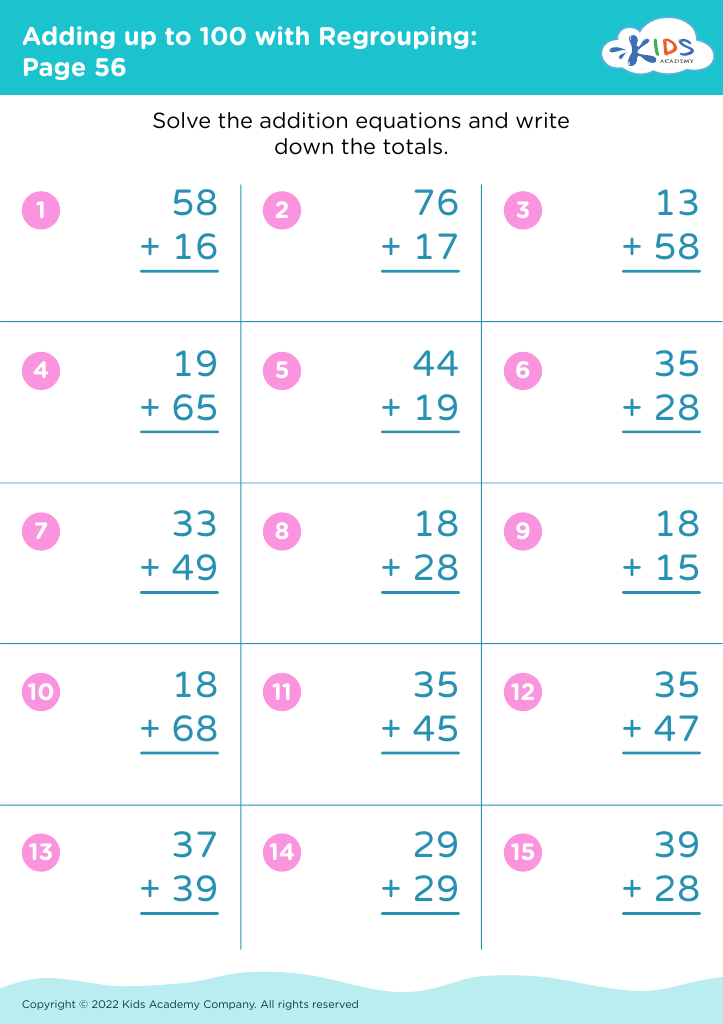

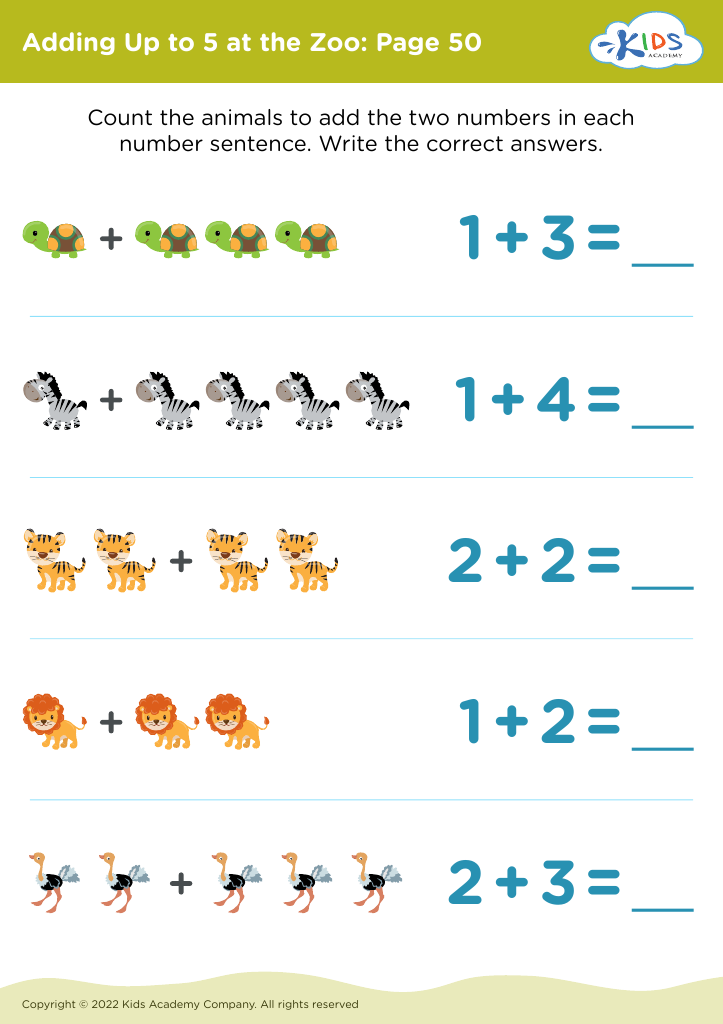
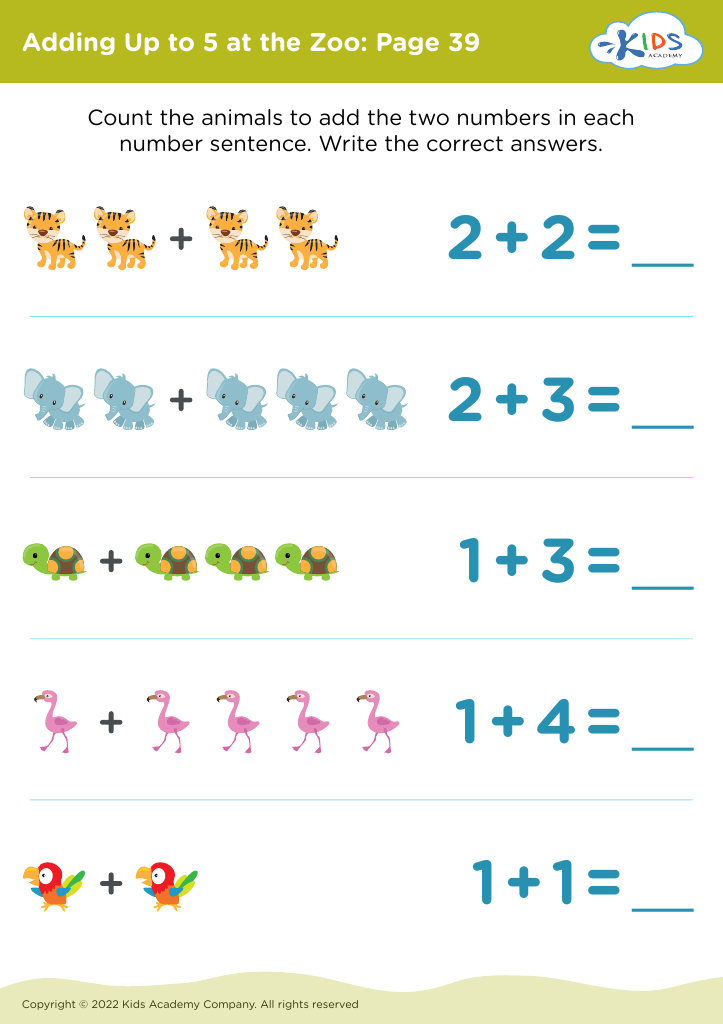
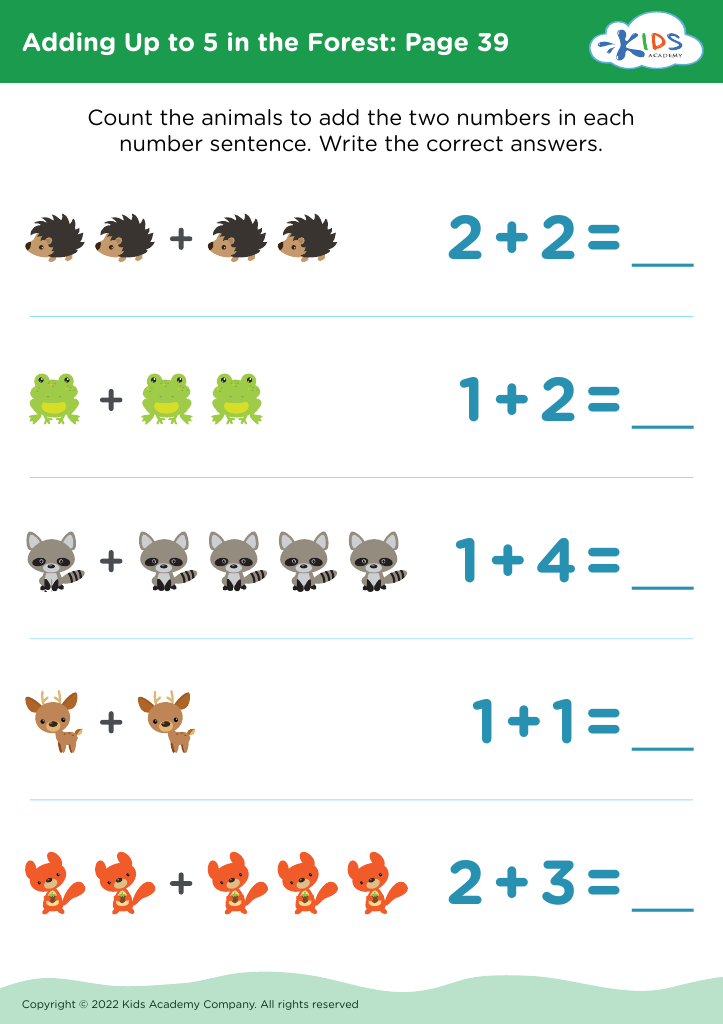

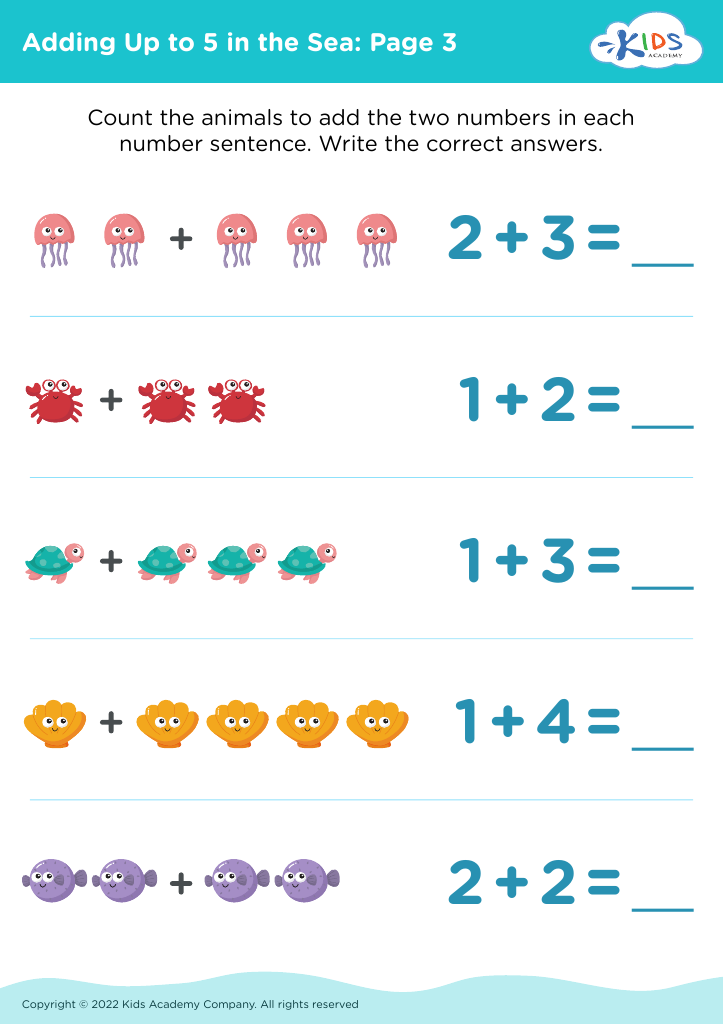
 Assign to My Students
Assign to My Students
